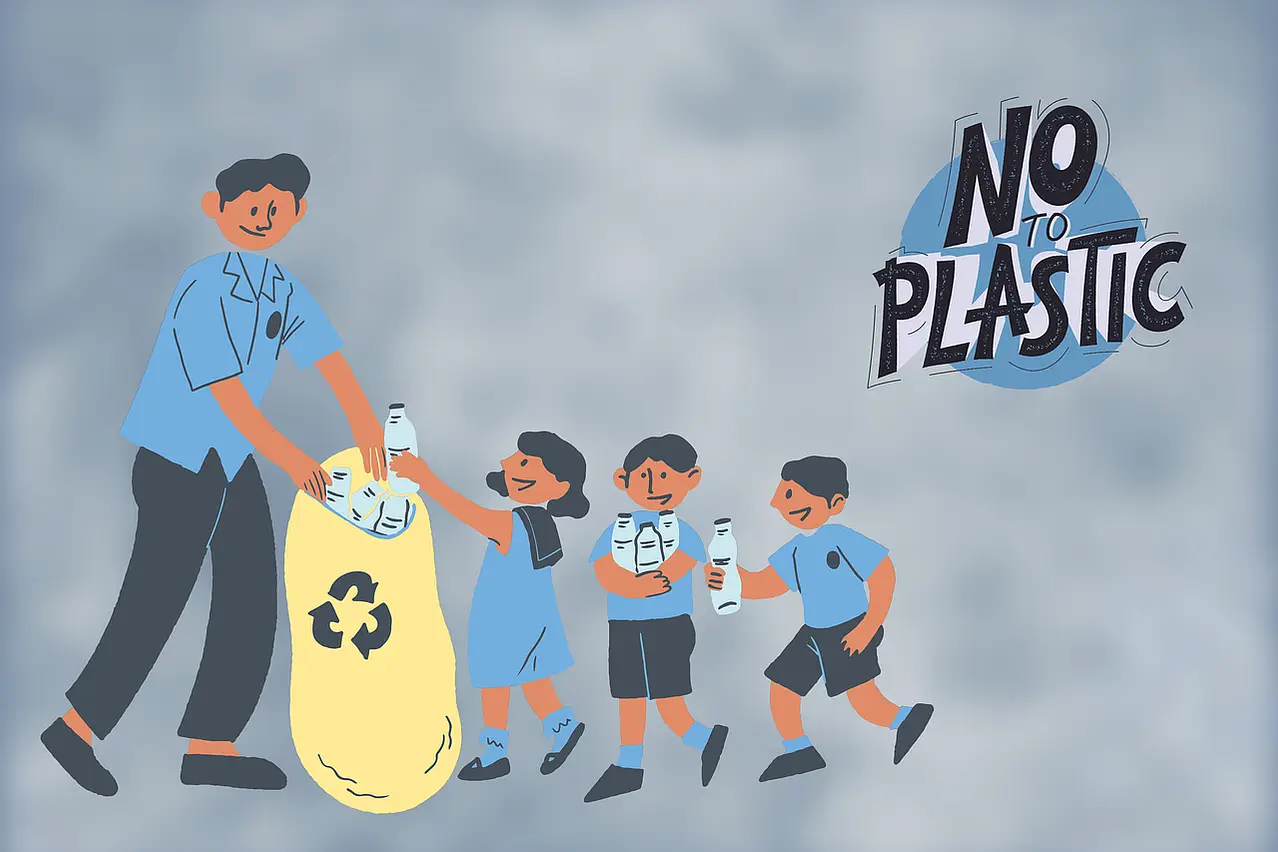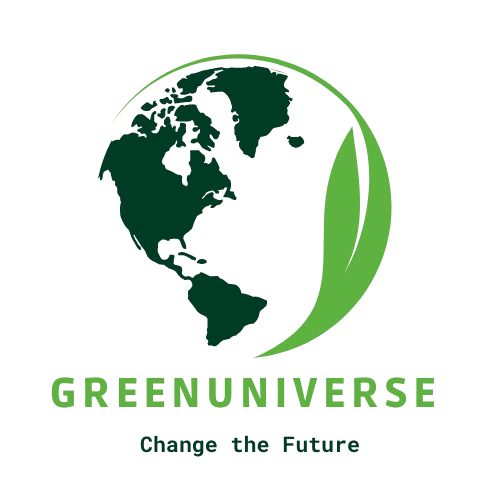Less plastic makes you happier
Plastic can often be avoided
It’s estimated that between five and thirteen million tons of plastic end up in our oceans every year. This kills over one million seabirds and over one hundred thousand marine mammals.

Today, nano- and microplastic residues can be found in water, soil, air and food. Not only house dust is contaminated with plastic particles, but also areas at the ends of the earth. Thanks to wind and water transport, the Antarctic, for example, is also polluted with plastic.
Plastic in the sea is life-threatening for whales and dolphins. They get caught in nets, swallow pieces of plastic and starve to death with a full stomach or become ill. Plastic concerns us all and that is why we, the Whale and Dolphin Conservation Organization WDC, are showing what options there are to stop the flood of plastic.
Today, plastic is even found in the blood and organs of the human body.
WATER FOR WATER (WfW) is an international non-profit organization with the vision of using water as a resource in a climate-friendly and fair way.

All the chemicals that could migrate from the packaging into the food are known, right?
Over 12’000 chemicals* are known to be used in the production of food packaging and other items that may come into contact with food. This poses huge problems for the recycling industry and the circular economy, as it means that the necessary sorting purity can never be achieved in a plastic collection.
Dr. Jane Muncke from explains in this video which types of chemicals can be contained in food packaging. She also discusses the unknown “non-intentionally added substances” (NIAS) and the challenges these chemicals pose for ensuring chemical safety.
*Source: https://unwrappedproject.org/chemicals-in-food-packaging
The History of Plastic
Biopolymers were used early in human history. And nowadays, plastic is made almost entirely from fossil fuels.
Source: https://www.nationalgeographic.de/umwelt/2021/04/26-wege-fuer-ein-nachhaltigeres-leben
Plastic dominates our lives these days. It is extremely easy to produce and very durable. However, extremely harmful chemicals are usually used in plastic production.

With the so-called recycling codes, you can find out what is contained in the individual plastic packaging. You will often find these symbols on the underside of bottles and packaging material.
Incidentally, the recycling codes do not mean that all these products can be recycled. So try to avoid plastic as often as possible. The following overview also includes plastics that do not pose a direct health risk to humans. Nevertheless, think about our environment in everything you do. So less plastic is better.
The 2023 Global Brand Audit Report

In 2023, 250 brand audits were conducted by 8,804 volunteers in 41 countries. Together, they collected and audited 537,719 pieces of plastic waste. Participants from 97 civil society organizations documented 6,858 brands from 3,810 parent companies.
Plastic polluting companies must be transparent about the quantities of single-use plastic they produce and the chemicals contained, urgently redesign their business models away from single- use packaging in order to dramatically reduce plastic use, and fully embrace reuse, refill and packaging- free product delivery systems.
It’s just a spoon – who cares…?
“It’s just a straw,” said 8 billion people.
The Truth About Coca Cola’s Plastic Waste Problem | Full Environmental Documentary
Is Coca-Cola really working on a “world without waste”? Another 10 tons of plastic are produced every second . 10% of all plastic produced ends up in the oceans , leading to predictions that by 2050 there will be more plastic than fish in the sea.
In the face of this global scourge, more and more companies are promising to recycle plastic, including the Coca-Cola Company, a corporation that sells 4000 plastic bottles every second in the world . Can we rely on the promises of these multinationals? And is recycling the solution? We investigated the company’s promises and found that their promises are as sugary and sweet as their products.
Coke Knew Their Plastic Would Trash the Planet… And Did It Anywayry
Once upon a time, Coke’s bottles were an environmentalist’s dream: stylish glass bottles washed and reused over and over, leaving no pollution. Today CocaCola is the world’s biggest plastic producer and polluter.
What happened? Watch our new investigative short documentary “EXPOSED: How Coke Killed the Refillable Bottle”
ABOUT
The Story of Stuff Project is an environmental nonprofit focused on anti-consumerism and putting people over profit.
Source: www.storyofstuff.org

Greenuniverse
The sustainability experts – we clear the way for you in the sustainability jungle.
Sustainability is in our DNA. We are happy to share our passion and many years of experience with you.
Issues
Nourishment
Sustainability
contact
Gaertnerstrasse 11, CH-4656 Starrkirch-Wil, Switzerland
(+41) 79 756 31 89